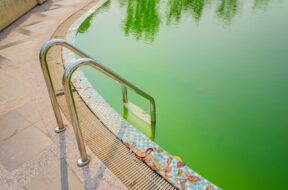
Want to learn more about algaecide? Read on to find out when to add algaecide to your pool maintenance routine and other helpful tips.
What you sanitize your pool with is one of the most crucial decisions you will make as a pool owner. Contrary to popular belief, there are many different ways to clean your pool. Chlorine is a great and reliable option, but it isn’t the only one. Today on Pool Calculator we are going to be diving into different types of Pool Sanitation. Here we are going to explain each type of pool sanitation is and give the pros and cons of each system.
Pool Sanitation systems come in 4 different forms; Chlorine, Saltwater, UV, and Ozone. The two formers have been mainstays in pool systems for a while, but the latter two have burst onto the scene more recently.
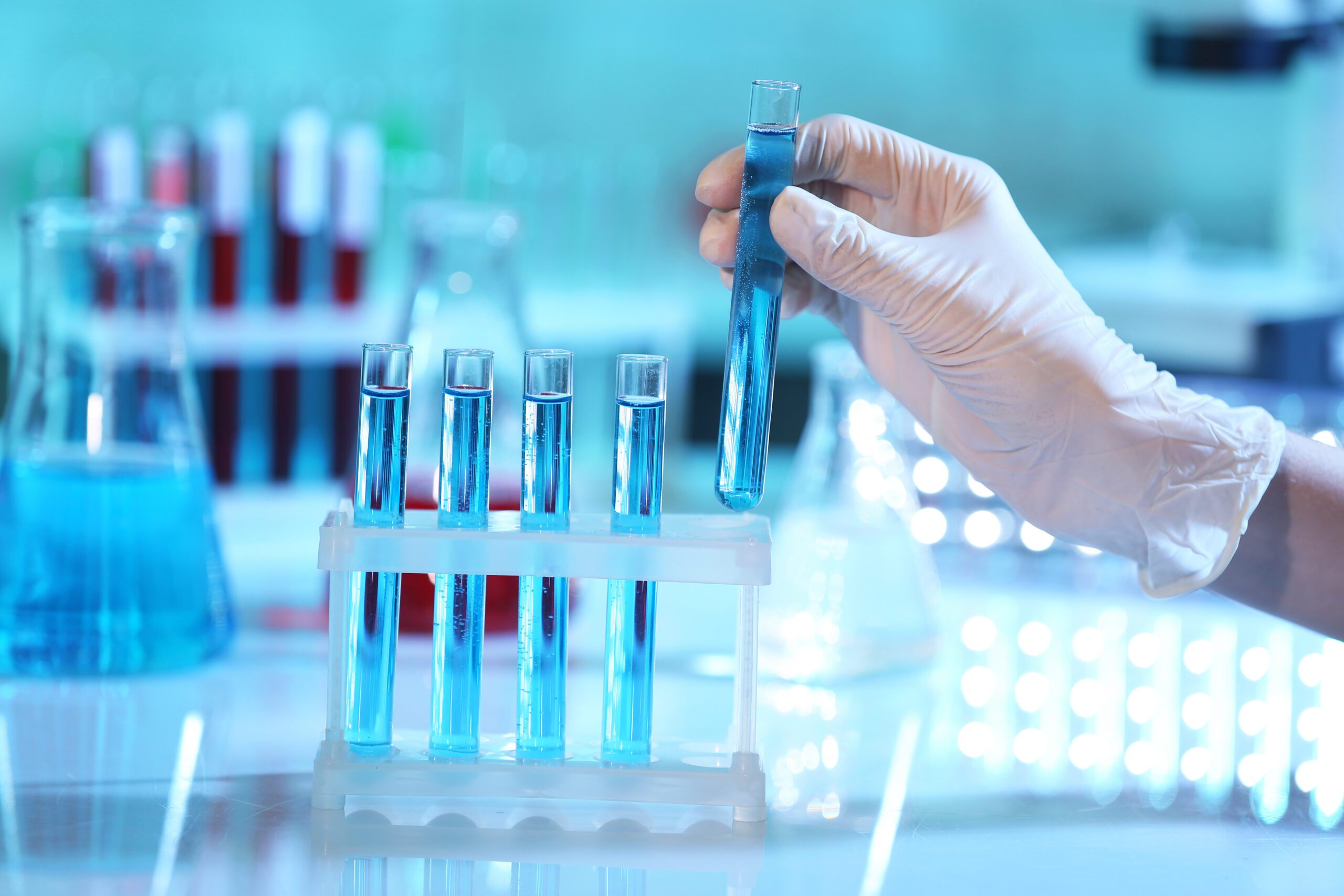
Click here for a deeper dive into a comparison of Saltwater Sanitation and Chlorine Sanitation
Chlorine systems are the “traditional” pool systems. They use chlorine alone to treat and disinfect your water. This has many upsides and downsides.
Saltwater systems are the second most common type of pool. They use salt treatment that is converted into a “chlorine-like” system that relies on less chlorine.
Ozone systems are considered the most obscure sanitation tactic on this list. They use ozone gas (O3) and inject it into the pool to oxidize bacteria and clean.
UV systems work by having water exposed to a UV bulb that uses UV rays to suppress bacteria. These lights also are great at targeting microbes that have become chlorine-resistant.
Overall, all of these systems have their fair share of benefits and downsides. Chlorine and saltwater systems are traditional, and ordinary. However, this means they are widely available, cheaper and easier to fix.
However, new systems like the UV and Ozone ones offer a new look at pool sanitation. These systems, while not completely independent, will get rid of a lot of the side effects of common pools. This will make your swim experience better, but at a higher cost and with a lot less support.
We at Pool Calculator like to lay out the information for all of you to consumer. However, at the end of the day the decision is yours alone to make.
For more articles on Pool Maintenance, click here!

Want to learn more about algaecide? Read on to find out when to add algaecide to your pool maintenance routine and other helpful tips.
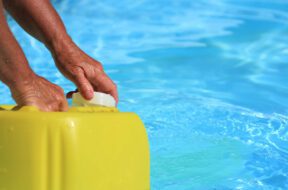
In this quick guide, we’ll answer the question “can you over shock a pool” and unveil the factors to consider when shocking a pool.
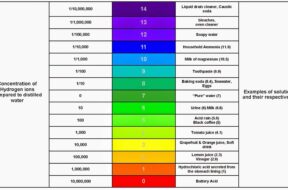
Maintaining both pH and total alkalinity in your swimming pool is important for keeping your pool properly sanitized and non-corrosive. Total alkalinity is to pH what cyanuric acid is to free chlorine. Total alkalinity stabilizes pH levels. The ideal pool pH level is 7.4 to 7.6. The ideal total alkalinity level is 80 to 120 ppm.
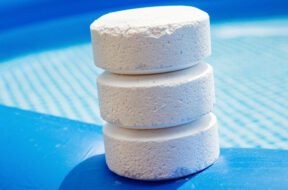
The Association of Pool and Spa Professionals recommends free chlorine levels for both swimming pools and hot tubs be kept between 2.0 and 4.0 ppm. However, the Center for Disease Control recommends free chlorine stay above 1 ppm in pools and 3 ppm in hot tubs.